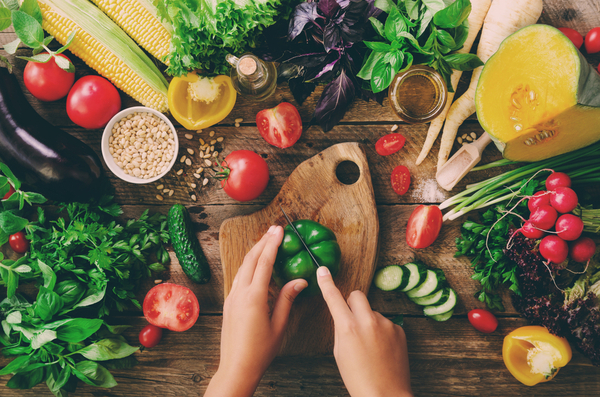
ADVERTISEMENT PROMOTION
Gemma Hurditch is a Naturopath and lecturer at the College of Naturopathic Medicine (naturopathy-uk.com).
Q: A family member has just been diagnosed with cancer. Is there anything I can change in my diet to help lower my risk?
A: According to a number of scientific studies, excess animal protein consumption, including from pasteurised dairy and prepared/processed meats, is a prime promoter of carcinogens (substances likely to cause cancers).
Reducing animal protein and increasing plant-based offerings can help. Legumes, nuts and seeds are all great sources of plant protein. Plant foods are higher in fibre, which can help with the excretion of excess oestrogen, the regulation of blood sugar and maintaining colon health.
A colourful diet
Eat the rainbow. The different colours that make up plants have properties that are linked to reduced incidence of disease.
For example, higher intakes of lycopene (the deep red pigment in tomatoes) and beta-carotene (which gives carrots their bright orange colour), are linked to reduced occurrence of epithelial ovarian cancer.
Stay as close to nature as you can by choosing minimally processed, locally grown, organic foods, if possible. Raw or only lightly steamed foods usually maintain the most nutrients and should make up the majority of your diet.
Love legumes!
Aim to have at least three quarters of your plate full of plant foods. Legumes are of particular interest as studies of long-lived people and populations have indicated that legume consumption is the most reliable dietary predictor for longevity.
It can be easy to build some legumes into recipes.
Lentils are ideal for lamb mince dishes, butter beans can bulk up a chicken stew or casserole. A four-bean mix is a delicious hearty replacement for beef mince in lasagne or bolognaise-style dishes.
Using traditional preparation methods, including fermentation, increases the nutritional availability and digestibility of legumes.
Choose the right soy
Soy protein isolate (SPI) and the products made from SPI are not recommended. Researchers studying genes, soy and breast cancer found that the compounds in minimally processed soy flour stimulate genes that actually suppress cancer, whilst highly processed soy isoflavones stimulate oncogenes – genes that promote tumour growth – so organic and traditionally prepared soy, such as tempeh or edamame, can stay on your menu.
However, it’s best to avoid SPI-enriched protein shakes and ‘high protein’ bars containing SPI.
Drink to your health
Other dietary swaps include replacing alcohol with cooled herbal teas such as rooibos, cinnamon, and lemon and ginger.
Alcohol consumption is linked to greater cancer risk. So keep it just for occasional use. Processed sugars are another culprit, so ditch the prepared juices and soft drinks and opt for mineral water or an organic kombucha drink.







